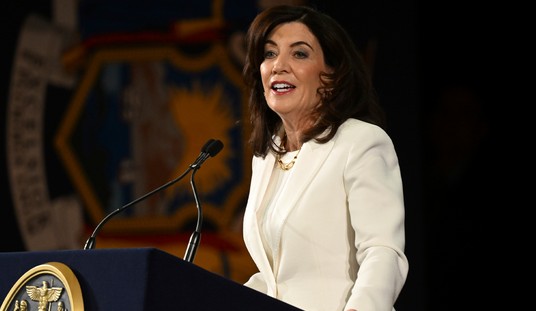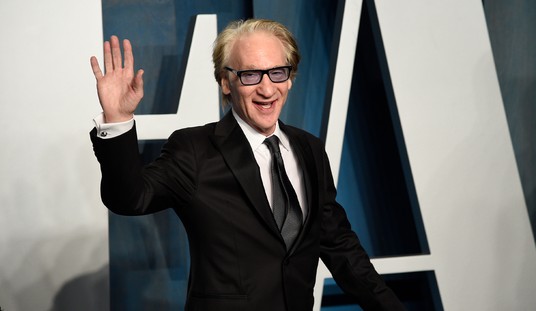Lines out the door and fierce winter weather couldn’t keep folks in Colorado from waiting eagerly for their chance to be among the first to legally purchase recreational marijuana on Wednesday.
Post growers in the state sold pounds of the sticky green drug to hordes of eager users and estimate across-the-board sales at $1 million on the first day the law took effect…
‘This feels like freedom at last,’ said Amy Reynolds, owner of two Colorado Springs medical pot shops. Reynolds came to Denver to toast the dawn of pot sales for recreational use. ‘It’s a plant, it’s harmless, and now anyone over 21 can buy it if they want to. Beautiful.’
[T]he reason to single out marijuana is the simple fact of its current (semi-)illegality. On balance, society will not be better off with another legal mind-altering substance. In particular, our kids will not be better off with another legal mind-altering substance…
Please do not argue that Colorado’s law, like those proposed elsewhere, bans sales to those under 21. Ha! I have teenage children. The laws against underage drinking represent more challenge to overcome than barrier to access.
And although alcohol seems to be the teen drug of choice among the adolescents I know, the more widely available marijuana becomes, the more minors will use it. If seniors in fraternities can legally buy pot, more freshmen and sophomores will be smoking more of it.
And it’s not as if the kids need encouragement. By the time they have graduated from high school, nearly half have tried smoking pot; 16.5 percent of eighth-graders have. More alarming, the number who perceive great risk from regular use has been plummeting, from 58 percent to 40 percent among 12th-graders, according to a study funded by the National Institute on Drug Abuse.
The Internet is on a tear tonight making fun of Brooks. I hate that. It makes talking seriously about this stuff impossible. I don’t have a strong view one way or another about legal pot — though I agree with Brooks’s point quoted here, even as I think substantial decriminalization is probably necessary — but I hate the way many liberals and libertarians are so zealous about the issue, in a way that shuts down deliberation. Somebody on my Twitter feed today said that pot legalization is for the left what guns are for the right: the issue on which there can be no legitimate dissenting position.
.@nytdavidbrooks on legalizing marijuana is too polite…http://t.co/uroaMgr42Z
— Tina Brown (@TinaBrownLM) January 3, 2014
…legal weed contributes to us being a fatter, dumber, sleepier nation even less able to compete with the Chinese
— Tina Brown (@TinaBrownLM) January 3, 2014
The other thing I notice is something I saw very early on when a whole bunch of pundits realized they had to say something to oppose gay marriage. These people simply don’t know a lot about the subject, do not regard it as serious enough to be better informed, and offer arguments that are so weak or irrelevant to the central question that they are setting themselves up for total failure in this debate…
[W]hat if pot enhances the higher pleasures – like listening to or making music, or appreciating fine wine or great food? And why doesn’t alcohol fit squarely into the same category? Millions of grown adults (not giggly teens) use the drug the way others use alcohol – with far less socially damaging or physically dangerous effect. What David doesn’t do either is address the real issue at hand: the social costs of prohibition versus the social costs of legalization…
The real argument is that the benefits of legalization far outweigh the costs – an argument David simply doesn’t address. I wish he would. I also wish that every pundit who writes about their youthful folly would do us a favor and research the current state of marijuana use and production, examine the far more sophisticated mixtures of CBD and THC, of sativa and indica, that this amazing plant is now grown to produce, and would acknowledge the medical uses of pot, which research is beginning to show are bewilderingly manifold. I wish they would not insult so many of their fellow adults and fellow citizens by arguing that their pleasure of choice is simply a way to be “dumb.” Calling those who disagree with you dumb is not that civil.
The absence of prohibition is not the presence of government sanction. There are a countless number of perfectly legal activities I may find personally abhorrent—giving money to a major-party politician, driving at the speed limit in the fast lane, rooting for the Boston Red Sox—but keeping them legally permissible is not a case of my values being trampled by the state. If anything, the opposite is true: The more government uses laws to shape behavior, the more it is likely to offend your core values, whatever they may be…
“Healthy societies” don’t throw millions of people into human meat lockers to satisfy the moral urges of social engineers. It is “a bit harder to be the sort of person most of us want to be” after you go to jail for engaging in the same recreational activity as a teenage David Brooks. The “moral ecology” got a whole better on Jan. 1, and will get better still when people stop using the criminal code as a laboratory experiment on their fellow human beings.
White, middle-class teenagers aren’t the people who suffer the most from marijuana prohibition. That distinction goes to black teenagers—and young men in particular—who are arrested by the hundreds of thousands at a rate that’s wildly disproportionate to their actual use. Despite roughly equal usage rates, notes the American Civil Liberties Union, blacks are almost four times more likely to be arrested for marijuana use than whites.
For a young David Brooks, smoking pot led to a little embarrassment in the classroom. Getting caught would have been unpleasant, but it’s hard to imagine it would have derailed his life chances. You can’t say the same for black teenagers in places like Chicago, New York City, Baltimore, and other cities around the country, where marijuana possession is sure to yield jail time and lost opportunities. Indeed, the stories are endless, from students who lost scholarships and financial aid, to young parents who lost benefits and housing eligibility.
In other words, the problem with Brooks’ column isn’t just the argument—which is flimsy and easily applicable to alcohol, tobacco or any other legal drug—it’s the blindness to injustice. Legalization will come with a lot of problems and complications, but at the least, it won’t be a world where whites receive a broad pass—and blacks, a strict punishment—for using the same substance.
Anyone who wants to see what a de facto legalization environment looks like can visit an elite college campus, where both the trade and use of marijuana are highly visible, and where those who get caught face the relatively minor sanctions associated with breaking campus rules rather than the lifelong consequences of breaking the law. What we basically have now is a system where marijuana is practically legal for the wealthy and white and illegal for everyone else…
As Michelle Alexander notes in her book, The New Jim Crow, the consequences of being convicted of felony marijuana possession can be far more dire than the sentence itself. Former offenders can find themselves deprived of professional or driver’s licenses, educational aid, food stamps, public housing, their right to vote, and they may find themselves fired and unable to find new employment, having been marked by society as little more than a criminal. For blacks caught up in the system it can compound the already considerable effects of ongoing racial discrimination…
There are degrees of decriminalization between marijuana prohibition and legalization–and people can argue how far the government should go. What’s clear is that under the current system, the wealthy and connected are almost entirely shielded from the consequences of marijuana being illegal, while the poor and non-white face catastrophe for engaging in the same behavior.
[N]one of the people I’ve smoked with, in D.C. at least, have found it impeded their work any more than a bit of heavy drinking would. As a habit, it’s somewhat less dangerous than heavy drinking, as it neuters the violent instinct, is hard to overindulge on, and isn’t as fun to ingest. (Your choice: Suck on a wet roll of paper full of vegetation in your friend’s bedroom, or knock back an aged and aerated red wine across the table from a date?)
I could go on embarrassingly about the benefits of the practice, and all the good it does for the bass run on “Heart of the Sunrise,” but all that really matters is that people shouldn’t have their lives ruined if they want to find this out. There’s already a first-order danger of wasting time or embarrassing yourself from experimenting with any drug, legal or otherwise. The prohibitionists are defending the enforcement of a second-order danger, the complete elimination of a person as a productive member of society. Marcus worries “that the number who perceive great risk from regular use has been plummeting, from 58 percent to 40 percent among 12th-graders.” Why wouldn’t it plummet? The greatest risk is from arrest, not from use—and anytime you use something that’s supposed to ruin your life, but doesn’t, won’t you naturally mistrust the nannies who warned you against it?







Join the conversation as a VIP Member